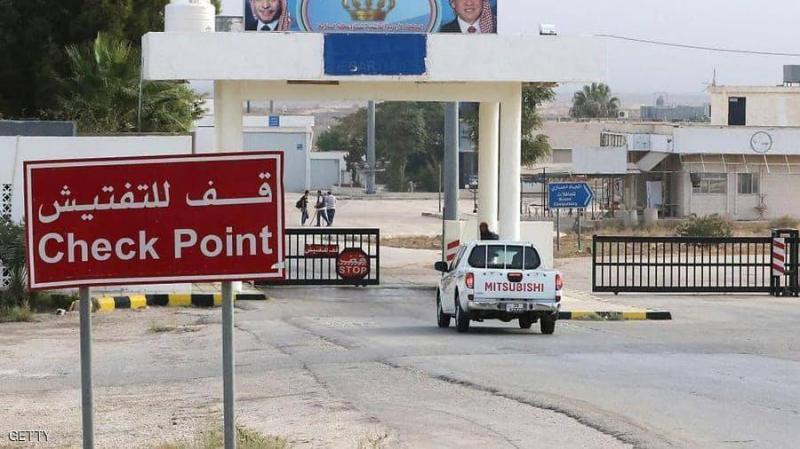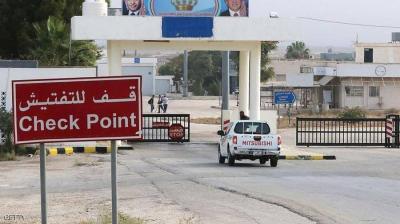Government and industry officials have stated that Jordan will fully reopen its main border crossing with Syria starting Wednesday, coinciding with the arrival of a high-level Syrian delegation in Amman to discuss how to facilitate the flow of goods that have been disrupted by the COVID-19 pandemic and the ongoing ten-year conflict.
Although the Jaber crossing has been open since 2018 after the Syrian government expelled armed opposition from southern Syria, trade has not yet recovered to pre-war levels of one billion dollars. Officials told Reuters that the pandemic led to measures aimed at halting the spread of the coronavirus, and these restrictions will be lifted starting Wednesday.
They noted that a visiting commercial delegation from Syria, headed by the Ministers of Economy, Trade, Agriculture, Water, and Electricity, will also discuss the removal of customs barriers. Jamal Al-Rifai, Vice President of the Jordan Chamber of Commerce, expressed hope that the moves will restore trade relationships that existed prior to the conflict and resume the lucrative transit trade.
Interior Minister Mazen Al-Farayah stated that restrictions on the passage of Syrian shipments to Gulf and Iraqi markets via Jordan will be lifted, which is what Damascus seeks. Al-Farayah told the "Jordan" television channel that transit goods from the Gulf will also be allowed to pass from Jordan to Syria, along with passengers traveling without restrictions.
Before the conflict in Syria, the Naseeb-Jaber crossing was a thoroughfare for hundreds of trucks daily transporting goods between Europe, Turkey, and the Gulf. Jordanian businessmen have largely avoided dealing with Syria following the issuance of the Caesar Act in 2019, which represents the most severe American sanctions to date, prohibiting foreign companies from dealing with Damascus. The only Syrian border crossing operating normally is with Lebanon, and in recent years, with Iraq, following the reopening of the Al-Qaim crossing in 2019.




